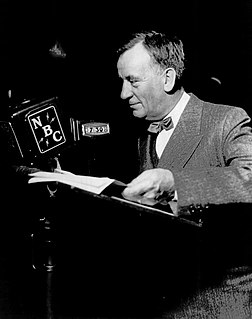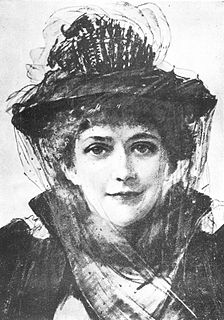A Quote by G. M. Trevelyan
I never knew a man go for an honest day's walk for whatever distance, great or small, and not have his reward in the repossession of his soul.
Related Quotes
Who does his task from day to day and meets whatever comes his way, Believing God has willed it so, has found real greatness here below. Who guards his post, no matter where, believing God must need him there, Although but lowly toil it be, has risen to nobility. For great and low there's just one test, 'tis that each man shall do his best, Who works with all the strength he can, shall never die in debt to man.
They say that dogs may dream, and when Topsy was old, his feet would move in his sleep. With his eyes closed he would often make a noise that sounded quite human, as if greeting someone in his dreams. At first it seemed that he believed Sara would return, but as the years went by I understood that his loyalty asked for no reward, and that love comes in unexpected forms. His wish was small, as hers had been -- merely to be beside her. As for me, I already knew I would never get what I wanted.
When I came on board, it was halfway through his [Frank Sinatra] 72nd year, and when he did his last show he was gaining on 80. He knew it, the audience knew it, and there was never any attempt to conceal such a thing. His vision wasn't what it had once been. His hearing wasn't. His memory was fading. He knew these things. He was very much in need of help, and I was so happy to be able, in a small way, to render that help.
Whatever the situation may be, in the recollection of death there is reward and merit. For even the man engrossed in the world benefits from it by acquiring an aversion to this world, since it spoils his contentment and the fullness of his pleasure; and everything which spoils for man his pleasures and his appetites is one of the means of deliverance.
It is God's earth out of which man is taken. From it he has his body. His body belongs to his essential being. Man's body is not his prison, his shell his exterior, but man himself. Man does not "have" a body; he does not "have" a soul; rather he "is" body and soul. Man in the beginning is really his body. He is one. He is his body, as Christ is completely his body, as the Church is the body of Christ
The true Indian sets no price upon either his property or his labor. His generosity is limited only by his strength and ability. He regards it as an honor to be selected for difficult or dangerous service and would think it shameful to ask for any reward, saying rather: "Let the person I serve express his thanks according to his own bringing up and his sense of honor. Each soul must meet the morning sun, the new sweet earth, and the Great Silence alone!. What is Silence? It is the Great Mystery! The Holy Silence is His voice!
In whatever area in life one may meet the challenges of courage, whatever may be the sacrifices he faces if he follows his conscience - the loss of his friends, his fortune, his contentment, even the esteem of his fellow men - each man must decide for himself the course he will follow. The stories of past courage can define that ingredient - they can teach, they can offer hope, they can provide inspiration. But they cannot supply courage itself. For this each man must look into his own soul.
At that instant he knew that all his doubts, even the impossibility of believing with his reason, of which he was aware in himself, did not in the least hinder his turning to God. All of that now floated out of his soul like dust. To whom was he to turn if not to Him in whose hands he felt himself, his soul, and his love?
Go ye, who rest so placidly upon the sacred Bard who had been young, and when he strung his harp was old, and had never seen the righteous forsaken, or his seed begging their bread; go, Teachers of content and honest pride, into the mine, the mill, the forge, the squalid depths of deepest ignorance, and uttermost abyss of man's neglect, and say can any hopeful plant spring up in air so foul that it extinguishes the soul's bright torch as fast as it is kindled!
Hope springs eternal in the human breast;
Man never Is, but always To be Blest.
The soul, uneasy, and confin'd from home,
Rest and expatiates in a life to come.
Lo, the poor Indian! whose untutor'd mind
Sees God in clouds, or hears him in the wind;
His soul proud Science never taught to stray
Far as the solar walk or milky way;
Yet simple Nature to his hope has giv'n,
Behind the cloud-topp'd hill, an humbler heav'n.








































